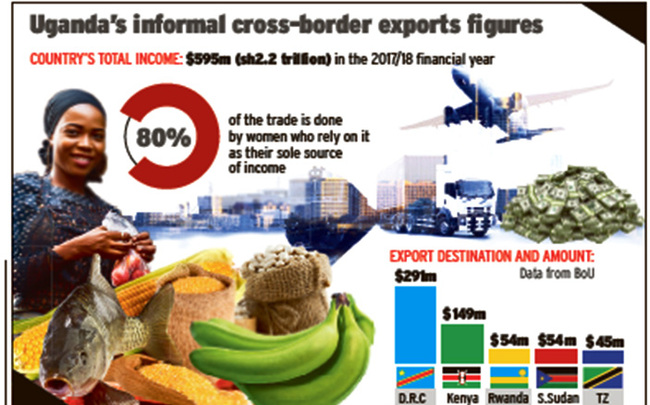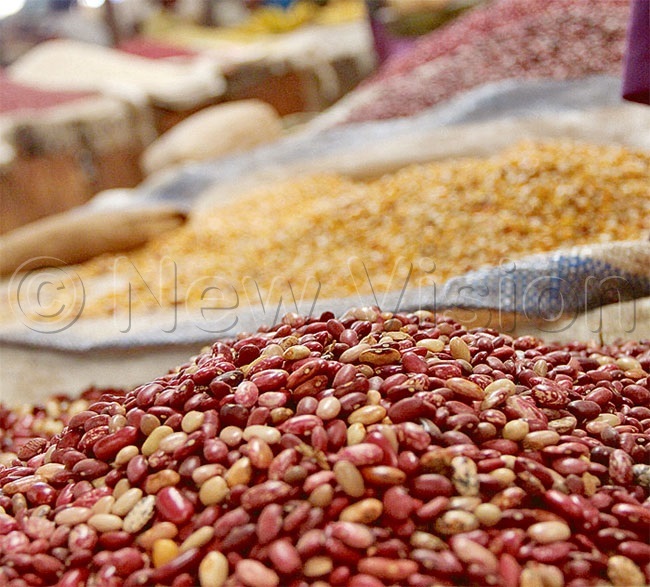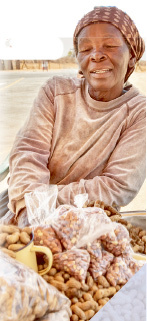COVID-19 brings informal cross-border trade to a standstill
Uganda enjoyed a booming cross border informal trade, 80% of which was being done by women as their sole source of income. However, the inevitable closure of borders because of the dangerous COVID-19 is threatening to drive the women out of business.
COVID-19 | TRADE
Uganda enjoyed a booming cross-border informal trade, 80% of which was being done by women as their sole source of income.
However, the inevitable closure of borders because of the dangerous COVID-19 is threatening to drive the women out of business, writes Faridah Kulabako
Over the past decade, increasing the participation of women in cross-border trade has been a key focus area for stakeholders in trade, including the Government, through the ministries of trade and the East African Community affairs and development partners, including TradeMark East Africa (TMEA), USAID and the Eastern African Sub Regional Support Initiative for the Advancement of Women.
Policies have been instituted to increase the participation of informal cross-border women traders to boost their incomes, improve living standards, and contribute to the country's overall economic development.

Data from the Bank of Uganda (BOU) indicates that informal cross-border exports fetched the country a total of $595m (about sh2.8 trillion) in the 2017/18 financial year. The Democratic Republic of Congo was Uganda's leading export destination, accounting for $291m (sh1.3 trillion).
It was followed by Kenya with $149m (sh691b) worth of exports, Rwanda, and South Sudan at $54m (sh250b) each, then Tanzania at $45m.
The main export items were agricultural produce, mainly beans, maize, sugar, bananas, and fish.
Trade was generally booming, then the COVID-19 reached the region, necessitating the closure of borders and paralysing movement.
According to the Elegu Women Traders chairperson, Margaret Auma, her group members are now stuck with merchandise - cereals, grains, and vegetables - which they usually exported to South Sudan.
"We are now using our savings to buy necessities at home. We are even getting some of the stock we had stored to feed our families. This means we are encroaching on the capital which we had generated, Auma said.
"We might not be able to take our children back to school and the living standards of members' families will deteriorate because it is women who toil to look after their families." The Mutukula Women Cross-Border Association chairperson, Jane Benuza and her Katuna Border counterpart Miria Akankwatsa, echo similar sentiments.
"This pandemic worsened the already bad situation at the Katuna border. The border had been closed because of political tension between Uganda and Rwanda and coronavirus made it worse," Akankwatsa said.
Benuza said their group co-operative, from which the women had taken loans, is on the verge of getting bankrupt because the clients are home and have not paid back the loans.
"What is happening at the borders is unfortunate but it has to be done. Informal trade has almost stopped because we are in a lockdown. It is mainly formal trade that is happening," TMEA trade expert Damali Ssali said.
"This means women, who are the majority in informal crossborder trade, have lost their livelihoods. They have been disproportionately affected. Informal trade contributes a lot to our economy, if it is affected, the economy is also being affected."
To mitigate the impact, according to Ssali, the TMEA CEO Frank Matsaert, announced a safe trade emergency facility to ensure safe trade. This would benefit both formal and informal crossborder traders.
"It is a multitude of interventions. We have to work through the COVID-19 National Task Force to see how we can facilitate public-private partnerships and how we can sensitise and provide information, especially at our major entry points, such as Malaba, Busia, Elegu, Mutukula, Mpondwe, and Bunagana, among others," she said. She added that TMEA is considering providing mobile labs at border points to ensure quicker testing for COVID-19.
"A lot of people are focusing on formal trade, but we also need to look at informal trade because it affects a lot of people's livelihoods. Informal traders are at these border points, if we enhance the capacity to test at these points, informal trade can go on safely," Ssali said.
She said TMEA plans to also work with the National Task Force on COVID-19 to develop mobile Apps that can track drivers
The Uganda Revenue Authority (URA) is currently using the cargo tracking system, implemented by TMEA, to track drivers inside Ugandan borders, but it loses connection if the driver enters another country in the case of transit cargo.
However, the chairperson of the National Logistics Platform, Merian Sebunya, noted that formal traders should also not be neglected because they have also been affected since the country now manily allows in essential cargo.
"We used to clear 1,000 trucks per day on average at the Malaba but that has fallen to between 500-600. There is a general slowdown. However, it is understandable because life comes first," she said.
 Main informal cross-border exports items include beans, maize, sugar, bananas and fish
Main informal cross-border exports items include beans, maize, sugar, bananas and fish
INITIATIVES FOR PROTECTION

Many initiatives to facilitate cross-border women traders have been put in place by TMEA. Among them is a memorandum signed with URA, on the Uganda Revenue Authority Women Traders Trade Facilitation Framework.
This was intended to boost their trade by addressing the information gap challenge that most informal cross-border women traders face and sexual harassment, according to Ssali.
"Sometimes women do not know that to export three sacks of maize, they do not need to pay anything. They only need a certificate of origin. So, we worked on that information asymmetry through this framework to ensure that the women are sensitised so that they are not disadvantaged by lack of information," she said.
TMEA also put up fully furnished offices/aggregation centres for women cross-border traders at all the one-stop border-posts (OSBPs), which include Malaba, Busia, Elegu, Mutukula and Mirama Hills, among others, to eliminate intimidation
EFFECTIVENESS OF MEASURES
The dedicated service to women, TradeMark East Africa's Damali Ssali, said has remarkably reduced the time women take at the border receiving Uganda Revenue Authority services.
Elegu Women Traders chairperson Margaret Auma said, as a result, women now use formal routes to convey their goods. Previously the informal routes, commonly called panya )translated as rat paths), exposed the women to risks, including bribe extortion and loss of merchandise.
Mutukula Women Cross-Borders Association chairperson Jane Benuza said the extortionists would term their activity as smuggling and force them to pay huge bribes. She blamed that on ignorance, which she said has been dispelled by "the various trade-related trainings and tax clinics which have opened our eyes".
She, however, appealed to the Uganda National Bureau of Standards to reduce the bureaucracy and have their products tested faster to enable them venture into bigger export markets.
National Logistics Platform chairperson Merian Sebunya noted that there is increased participation of women in trade and compliance levels at border points, which he attributes to the simplification of customs clearance procedures and enhanced working relationships with women traders.
He encouraged women to formalise their export businesses to benefit more from bigger opportunities
WOMEN TRADER ASSOCIATION

Former Uganda Revenue Authority (URA) commissioner-general Doris Akol (pictured) launched the URA Women Traders' Initiative in Busia in July 2018, to address challenges faced by women traders and to assimilate gender impartiality in the reforms and modernisation agenda.
At the core of the framework is the simplification of customs clearance processes and procedures, as well as building working relationships with women traders to foster a better business environment.
Women in cross-border trade now enjoy easy access to trade documents like Certificates of Origin and use of the simplified regime among others.